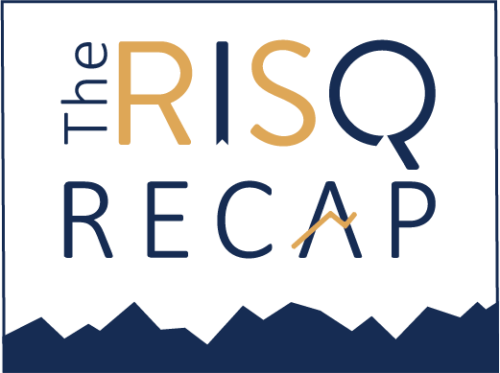
Each week, you’ll find specially curated news articles to keep you up to date on the ever-evolving world of insurance and risk management. The articles are divided out between items relevant to Property & Casualty, Employee Benefits/Human Resources, and Compliance. We’ve included brief summaries of each item as well as a link to the original articles.

PROPERTY & CASUALTY
Bad Driving, Inflation Among Factors Pushing Increase in Auto Loss Ratios
“US auto insurers are coping with the largest direct loss ratio in 20 years because of factors that include historic inflation, a deterioration in driving behavior and sky-high jury awards, the American Property and Casualty Insurance Association says in a new report. APCIA said the direct loss ratio for auto physical damage reached 77.1% in the third quarter of 2021 — after reaching an historic low of 45.2% during COVID-19 business shutdowns in the second quarter of 2020.” Full Article
– Insurance Journal

EMPLOYEE BENEFITS, HUMAN RESOURCES, & COMPLIANCE
Managing Expectations When Administering COBRA Open Enrollment Periods “Qualified beneficiaries may modify their COBRA coverage during COBRA-defined open enrollment periods. Also, qualified beneficiaries have the same rights to change their coverage during open enrollment periods as active employees. They are not limited to the rights they might have had as spouses or children of active employees.” Full Article – Proskauer, via HR Daily Advisor
States Struggle to Ensure Equal Access to Behavioral Health Benefits Amid Mental Health Crisis “Effective review and oversight of MHPAEA enforcement in the states are time- and resource -intensive processes which pose significant challenges to regulators. Providers and patients are often unaware of insurers’ obligations to provide equal access to mental health services under the federal parity law, removing a tool that states rely on to flag potential violations. Funding from federal grants has been critical in state enforcement efforts.” Full Article – Robert Wood Johnson Foundation
Taxation of Tuition Assistance Plans “Since tuition assistance can be an expensive benefit for employers some … will require employees to repay the benefit if they leave employment within a designated period of time after receiving the benefit…. What are the tax consequences to employees who receive a taxable tuition assistance amount from their employers subject to a repayment requirement, but who then leave employment and are required to repay all or a portion of the amount received?” Full Article – Boutwell Fay LLP
Cafeteria Plan COLA May Require Employer Action “If your plan does not make an automatic change to increase the health FSA adjustment for future plan years, your plan document will need to be amended to permit your employees to put the additional $200 in their health FSAs for 2023. And even if your Plan is automatically increased for cost-of living adjustments, you will need to amend any references to this limit in other documents, such as your SPDs or election forms.” Full Article – Graydon
Upcoming Deadline Under the No Surprises Act: Air Ambulance Reporting by Group Health Plans and Insurance Issuers “Though we are waiting for the final rule and for the Departments to establish a method for submitting the reports, plans and issuers should start ensuring that their systems and vendors are able to gather and collect the data identified by the Proposed Rule. Practically speaking, the heavy lifting associated with the reporting requirements is likely to fall on issuers and TPAs.” Full Article – Foley & Lardner LLP
The IRS Releases Final Rule Addressing the “Family Glitch” “The affordability standard for an employee’s PTC eligibility remains based on the cost of self-only coverage, so this regulatory change will not increase the number of employees who will newly become eligible for PTC-subsidized coverage on the Exchange. The 2022 Regulations do not affect the employer mandate penalty, because they do not change the affordability rules for employees themselves, and the employer mandate is only triggered when an employee, not a family member, receives a PTC.” Full Article – Groom Law Group

STATE & INTERNATIONAL COMPLIANCE
In addition to the RISQ Review, RISQ Consulting also provides a resource that features changes and updates to State and International Compliance measures. We’ve included brief summaries of each item below, and also provided links to the original articles if you’d like to read further.
CALIFORNIA
California Prohibits Retaliation Against Employees for Refusal to Report to Work During Emergency Conditions
“On September 29,2022, California’s Governor Gavin Newsom signed Senate Bill (SB) 1044, which prohibits an employer in the event of an emergency condition from taking or threatening adverse action against any employee for refusing to report to or leave a workplace or worksite within the affected areas because the employee has a reasonable belief that the workplace or worksite is unsafe.” Full Article
– Jackson Lewis PC
WASHINGTON
Washington State Employers to Face Significant Minimum Wage and Salary Threshold Increases
“Starting January 1, 2023, the Washington state minimum wage will be $15.74 per hour. This is a $1.25 increase from the current 2022 minimum wage of $14.49 per hour. Because the salary threshold for exempt employees in Washington is tied to a multiple of the minimum wage, the exempt salary threshold for all employers with Washington-based employees will also increase.” Full Article
– Davis Wright Tremaine LLP
COLORADO
Colorado Gears Up for Sweeping New Paid Family and Medical Leave Insurance Program
“Colorado employers may want to begin preparing for the implementation of Colorado’s new state-run Paid Family and Medical Leave Insurance (FAMLI) program.” Full Article
– Ogletree Deakins LLP
NEW JERSEY
Attention New Jersey Employers: NJ Cannabis Regulatory Commission Issues Interim Guidance on Workplace Impairment
“On Sept. 9, 2022, the NJ Cannabis Regulatory Commission (NJ-CRC) issued interim guidance on detecting “workplace impairment” following the passage of the New Jersey Cannabis Regulatory, Enforcement Assistance, and Marketplace Modernization Act (CREAMMA) almost two years ago.” Full Article
– Greenburg Traurig LLP
TEXAS
Texas District Court Holds EEOC Guidance on Sexual Orientation and Gender Identity Discrimination Unlawful
“On October 1, 2022, the United States District Court for the Northern District of Texas held that Equal Employment Opportunity Commission (“EEOC”) guidance addressing sexual orientation and gender identity discrimination in the workplace is unlawful. The case is State of Texas v. EEOC.” Full Article
– Proskauer Rose LLP





 Subscribe to the RISQ Recap, a weekly post to help you stay up to date on news articles and resources for your organization’s compliance needs.
Subscribe to the RISQ Recap, a weekly post to help you stay up to date on news articles and resources for your organization’s compliance needs.